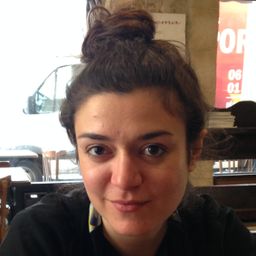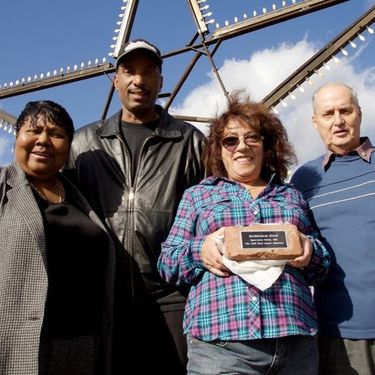
Sessions auxquelles Zara Fournier participe
Lundi 6 Juin, 2016
Sessions auxquelles Zara Fournier assiste
Vendredi 3 Juin, 2016
Welcome addresses and cocktail, followed by the Concordia Signature Event "The Garden of the Grey Nuns". As the opening ceremony and cocktail take place in the former Grey Nuns' Motherhouse, recycled into campus residence and reading rooms by Concordia University, delegates will also have the possibility to discover the video Three Grey Nuns (3 minutes, by Ron Rudin and Phil Lichti. Three Grey Nuns recount their memories of communal life in the Grey Nun’s Motherhouse. Built...
Working with archival documents and the current-day morphology of the Grey Nuns' site, Dr Cynthia Hammond, Dr Shauna Janssen, in collaboration with Dr Jill Didur, will curate a series of installations and performances that speak directly to the rich heritage of a specific urban landscape: the gardens of the Grey Nuns' Motherhouse, now part of the Concordia University downtown campus. Visitors will have the opportunity to explore the lost working gardens of the Grey Nuns. As with other such...
Samedi 4 Juin, 2016
What if we changed our views on heritage? And if heritage has already changed? While, on the global scene, states maintain their leading role in the mobilization of social and territorial histories, on the local scale, regions, neighbourhoods and parishes have changed. Citizens and communities too: they latch on to heritage to express an unprecedented range of belongings that no law seems to be able to take measures to contain, often to the discontent of...
How do borders shape heritage and its potential for change? Despite the growth of international connections in heritage studies, national, linguistic and disciplinary borders continue to structure scholarly and practical approaches to heritage. The aim of this session is therefore threefold. First we will address which borders limit our understanding of heritage today. What are the roles of linguistic, disciplinary, religious and national borders? Which methodologies are best suited to overco...
Le patrimoine n’est pas un donné, c’est un construit culturel et social, dynamique et itératif (Gravari-Barbas). La construction patrimoniale est la construction d’une croyance à partager/imposer. Le statut d’objet patrimonial que l’«on» (experts, élites, décideurs…) donne à un objet suppose de le saisir comme spécifique. C’est aussi l’occasion d’une saisie de la dynamique qui amène la spécificité patrimoniale, cette même dynamique qui est le terrain d’action des politiques, des prises en cha...
Heritage practices often lead to social exclusion. As an "Authorized Heritage Discourse" (AHD) (Smith 2006) may define what is considered to be heritage, a certain set of social values can come to exclude other values. By formulating heritage policies which reproduce the existing AHD government may further such exclusion. Every now and then AHDs are challenged, leading to what political scientists like Ross (2007; 2009) call "cultural contestations" between groups. These are surrounded ...
Dimanche 5 Juin, 2016
"What does heritage change?" is a multifaceted question to which the answer(s) are in primary respects related to real-life negotiations among different groups of citizens, cultures, races, ethnic groups, sexual identities, and social classes about received, official and/or widely accepted or accomodated intangible attributes, cultural traditions, historic monuments, buildings, and other transmitted or revived historical legacies. Heritage designated by and for whom, for what motivations, an...
Directed by Tom Fassaert and presented by Marc Jacobs. ___ Doel, a Belgian village near the Dutch border, is disappearing quickly and deliberately. Not because of the four old nuclear reactors on its territory, but because the Flemish government decided that the village might block projects for new docks for the Antwerp harbour, plans developed since the 1960s. In the 21st century this process of officially encouraged depopulation is coming to an end: 2500 inhabitants i...
Lundi 6 Juin, 2016
Around the globe the planning of large-scale memorial-museum projects concerned with violent histories are frequently marred by conflict, omission, and competitions of victimhood. This problem also extends to scholarship on genocide and memory. “Moving memory” is a collaborative multi-sited research exhibition about the Armenian and Roma genocides that proposes creative solutions to these museological and scholarly conflicts around commemoration. Our multi-sited event includes two pr...
This proposal makes the case that heritage’s capacity for change may be dependent on a paradigm shift in how heritage is interpreted. With this paradigm shift in play, a question is then asked: Can authenticity be used as a design driver to resolve how best to incorporate the four pillars of sustainability in a building’s design? The proposal begins with a discussion about the difference between using heritage reactively and proactively. It then presents a brief introduction to the...
Le patrimoine fait aujourd’hui l’objet d’attentions autant que d’agressions et de destructions. Cela peut s’expliquer par les difficultés de son identification ou de sa conservation. Cela peut plus profondément s’expliquer parce que, dès le départ, il célébre un événement ou conserve une mémoire qui peut être ou devenir une source de dissenssions et de conflits politiques. Enfin, sa reconnaissance suscite des gains économiques pour les uns mais des pertes pour les autres. Mais peut-être...
To celebrate our film series dedicated to heritage, sponsored by the Department of American Studies at the University of Maryland and the United States Chapter of the Association of Critical Heritage Studies, this event will spotlight the iconic Sugar Shack, which is rooted from Quebec to New-England and which is both the place of maple syrup production and of friendly gatherings during the maple syrup season. In a festive atmosphere, delegates will be invited to taste one of the essential of...
Directed by William Shewbridge and Michelle Stefano USA; 35 mins Presented by Michelle Stefano ___ After 125 years of operation, the Sparrows Point Steel Mill (Baltimore, Maryland) finally closed its doors in 2012. The film, “Mill Stories”, examines the importance of the mill from the perspectives of former workers and community members while connecting their story to the larger narrative of industrial boom and bust. The film seeks to amplify the voices of forme...
Directed by Christine Walley and Chris Boebel Presented by Michelle Stefano When the steel mills began closing on Chicago's Southeast Side, residents could feel the American Dream slipping away. Decades later, the loss of the steel industry has left permanent scars. The documentary film, Exit Zero: An Industrial Family Story, is named for the highway exit number for Chicago’s old steel mill neighbourhoods and captures the feeling of a region passed over. In poignant and some...
Mardi 7 Juin, 2016
(en français) Le centre-ville a été au cœur de nombreuses luttes depuis les années 1970. Le parcours proposé par Martin Drouin, historien, professeur au département d’études urbaines et touristiques de l’Université du Québec à Montréal, présentera quelques combats qui ont marqué la scène patrimoniale et transformé le paysage urbain montréalais. _ Downtown Montreal has been at the centre of numerous struggles since the 1970’s. The itinerary proposed by Martin Drouin, historia...
Si la ville moderne occidentale se transforme, sous l'action des aménageurs, en écho à des utopies, des programmes de développement et des intérêts économiques, on néglige trop souvent l'action quotidienne d'habitants et d'acteurs sociaux qui s'approprient les lieux et contribuent à les transformer. Dans cette mutation de la ville, le patrimoine se trouve à la croisée d'enjeux économiques et sociaux singuliers: d'une part il est convoqué par les aménageurs et les acteurs de la gentrification ...
Photography was recognized as an instrument of heritage preservation from the moment of its inception in the early nineteenth century, when projects such as Les Excursions Daguerriennes (1841-1843), a set of Romantic engravings of monuments based on photographic documents, established the links between sight and science, memory and history, hortatory reification and ‘ruin lust’ (Brian Dillon, 2014). This session was conceived in the certain knowledge that almost every speaker at t...
Dans un texte majeur, «L’arrêt de monde», Deborah Danowski et Eduardo Viveiros de Castro explorent le thème de la fin du monde tel qu’il se déploie aujourd’hui «dans l’imaginaire de la culture mondialisée». Entre fiction, philosophie et anthropologie, ils déroulent la scène sombre de nos futurs d’espèce humaine devenue force géologique et autodestructrice vivant non plus sur mais dans une planète considérée comme un être vivant et une puissance menaçante (Gaïa). Si le spectre de la catastroph...
In exploring the broader question “What does heritage change?” this session presents work that is extending heritage policies and practices beyond elite cultural narratives. Using diverse disciplinary perspectives and drawing from case studies around the world, the presenters explore contexts in which stakeholders’ perspectives and choices have been catalysts for change, democratized knowledge, or exposed gaps in contemporary heritage practices. The case studies reveal complex and often conte...
An experiment in moving memory, this live event bridges public and academic space to re-imagine knowledge exchange, creation and impact. Around the globe the planning of large-scale memorial-museum projects concerned with violent histories are frequently marred by conflict, omission, and competitions of victimhood. This problem also extends to scholarship on genocide and memory. “Moving Memory: difficult histories in dialogue” is a collaborative multi-sited research exhibiti...







